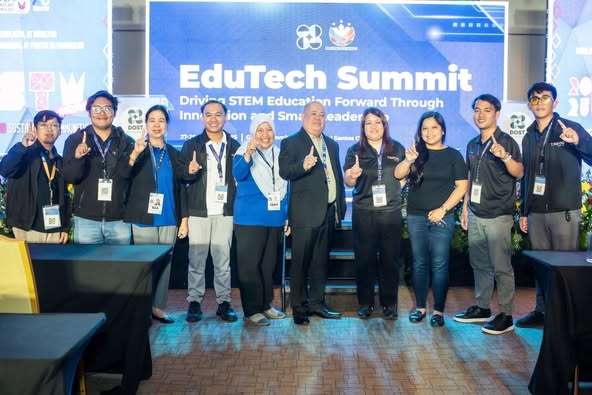The afternoon sessions of the 2025 Regional Science, Technology, and Innovation Week (RSTW) featured two parallel R&D Summits that highlighted pioneering projects aligned with regional development priorities.
R&D Summit 1 focused on innovations in textiles, smart mobility, and sustainable urban transport:
Ms. Jona May G. Basit of the Philippine Textile Research Institute (PTRI) introduced “SEDA Pilipinas,” a groundbreaking project merging traditional Philippine silk weaving with advanced technology to promote sustainable livelihoods and preserve cultural heritage.
Mr. Timothy Joshua Vargas, President and Co-founder of Mobility Vision+, showcased smart mobility solutions that leverage digital platforms and data analytics to improve transportation efficiency in cities.
Dr. Audy R. Quebral, Project Leader of eTram and CEO of Aparri Campus, discussed the development of an eco-friendly transport system aimed at cutting carbon emissions and supporting sustainable urban growth.

These presentations were followed by an engaging open forum where participants exchanged ideas on blending science, culture, and technology for sustainable progress.
R&D Summit 2 centered on community-focused research tackling social welfare, disaster preparedness, and agriculture:
Dr. Noel S. Gunay of Mindanao State University-General Santos introduced “ItWatcher,” an AI-powered 24/7 traffic monitoring system designed to enhance road safety and traffic flow in General Santos City.
Dr. Mary Jane K. Balawag of Notre Dame University presented her study on the psychosocial impact of maternal incarceration on children, highlighting the need for stronger social support systems.
Engr. Christopher A. Benito of the University of Southern Mindanao presented the “USM Center for Flood/Landslide Preparedness and Mitigation,” a project aimed at strengthening community resilience through disaster risk reduction and early warning systems.
Dr. Edward Barlaan showcased his research on cacao varietal fingerprinting, which identifies high-yield and quality cacao varieties to improve farmer productivity and preserve traditional Philippine strains.
The session concluded with a strong call for collaboration among academe, government, industry, and communities, underscoring that addressing real-world challenges through innovation requires collective effort. (Alex P. Josol, Cathy Q. Cat and Amirel Mamacotao)